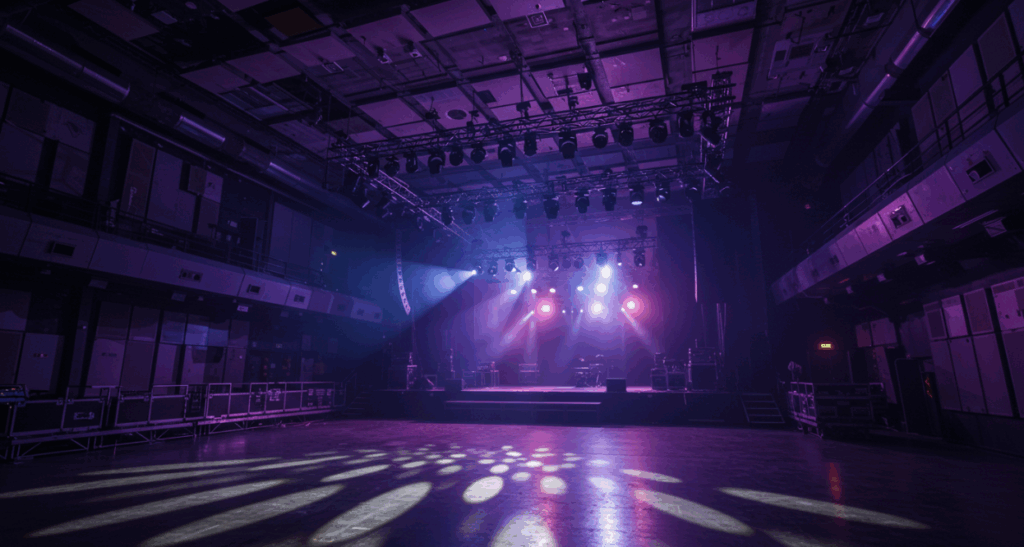
Virtual Event Promotion: What We’ve Learned
Going Virtual
One of the many things we’ve learned through the COVID-19 pandemic is that life can still go on, if only virtually. It’s incredible to see how quickly schools, businesses, support groups and entertainment venues were able to go from live to virtual in a matter of days. What’s equally impressive is how rapidly the public adopted these new forms of connection, revealing an important fact: if you do virtual right, people will still come.
As an event promoter, now is the time to get organized and creative. Streamline your event management operations and start thinking outside of the box. You can do more than you think, even when things aren’t going exactly as planned.
As we slowly get back to “normal,” event promotions will surely change for good. Who knows when the need for virtual events will rise again. In some ways, virtual may open up new opportunities to bring access to a greater audience. At the very least, it will force you to be more resilient and adaptive to meet the needs of your audience.
Here are some examples of how events we may have never imagined as anything but live worked in a virtual world.
Concerts
Let’s be honest: there’s nothing that can fully replace a live concert. The sounds, the visual effects, the crowds, the synergy – it’s intoxicating. But when live concerts are impossible, virtual may be the only way to go. Virtual concerts have been successful during the pandemic because people have had no other options, but what we learned is that the entire experience wasn’t ruined, it was just different. People tuned in and more people were able to attend.
Many artists offered fans virtual concerts online, either in the form of big productions that are aired on television or social media live streaming. From Dolly Parton and Katy Perry to music festivals with dozens in their lineups – all figured out how to offer performances to an online audience.
Plays
Whoever heard of a virtual play? Well, why not? If we can binge-watch Netflix, why can’t we watch plays online? That’s exactly what many productions decided to do. Full-length productions hit the air on various channels, like YouTube, Disney streaming, Netflix and more. Hamilton, Jesus Christ Superstar, Cats and Shakespeare are just a few of the stage hits offered on various outlets, most for free.
While the experience may be different than a theater, virtual plays bring the artistry to an audience that may not typically go to see a play and those who may not have ever been able to afford a ticket. When things do get back to normal, perhaps a larger audience will buy tickets to see plays inhouse.
Sporting Events
Saying goodbye to large-scale sporting events has been one of the hardest pills to swallow, but it doesn’t mean all is lost. We’re already used to watching sports on television, but with the COVID-19 pandemic, we have been forced to accept that many of the events we enjoyed in person would have to be watched from home.
From soccer and Nascar to horse racing and baseball, athletes did their thing while we watched from our living rooms or mobile devices. Fan stands may be empty, but that hasn’t meant the events aren’t watched, likely by countless more people than if every ticket had sold out.
Soccer was one of the first sports to go virtual to great success. Germany’s Bundesliga soccer league restarted its season, not to the typical 81,000 stadium fans and approximately 1.5 million television/online viewers but 3.68 million virtual viewers. Virtual sports betting is also on the rise, “offering revenue-generating content that can both withstand global pressures and continue to drive growth.”
How You Can Learn from The Big Guys
Sure, all of the above examples are for large-scale events, but you can learn a lot from what they do without having mounds of cash to throw at it. As a venue owner, what can you start thinking about as you make a plan on how you can thrive, even in the toughest times? Our top three tips?
- Expand your use of social media,
- Tap into your fan groups, and
- Optimize your website.
Social Media
Social media is your best friend when it comes to event promotion. It exposes you to a massive audience and leverages crowd sharing to get your events promoted, often without spending a dime. Instead of just posting upcoming events on your venue Facebook page, for example, create a dedicated page geared just for each specific event and share it with your target markets. Better yet, make friends with influencers and have them do it with you. This makes it much easier for your followers to share, find event-specific information quickly, and become engaged as they make comments, ask questions, and share information.
Of course, Facebook isn’t your only medium. You can create a clever hashtag on Twitter and invite fans to share their excitement for the event via contests, games and challenges, or other strategies to get them to retweet. Try posting provocative or mysterious event pics/videos on Instagram, Tik Tok, etc. and ask your followers to guess something about them or share their own videos. Drawing people into the event prior to the event is more likely to help your event go viral or at least reach more of your target market.
Fan Groups
Your venue may have its own fan groups, but your talent surely does. You want to promote your event to these people first and foremost as they will likely be your biggest unpaid promoters. Get them excited about your event by adding incentives for shares, retweets, and involvement. Remember: these are the people that already love your venue and/or the talent you’ve booked. They are almost always willing to promote if you just ask.
Get fans excited by asking them to post videos and pics of them at previous concerts or at your venue. Offer them discounted merch for a specific number of social media shares. Give them “early bird access” to your event. Do whatever you can to make them feel special and they’ll honor you with getting your event info out to their friends.
Your Website
Your venue website may be the first place people go to learn about any upcoming events. Be sure your website is optimized for event registration. You need an interesting website that attracts your target audience and offers information they want to see. Most importantly, your website needs to give your viewers easy access to register and pay for events, virtual or not.
Your website needs to be easy to navigate and users shouldn’t have to click on multiple links to get to what they need, particularly when it comes to buying a ticket. Use web analytics to see who is visiting, when, and where they are spending the most time. This will guide you on how to optimize your website further.
Keep in mind that you can still make money off of virtual events. You can:
- Sell tickets as usual to view concert
- Sell ad spaces on your website
- Sell merchandise
- Offer VIP tickets with added benefits
- Offer paid sponsorships
- Sell recordings of the event
- Ask for donations to view

Matt Ford is the founder and CEO of Prism.fm, an Austin-based software company revolutionizing live music event management. With a background in entrepreneurship and a degree from the University of Wisconsin-Madison School of Business, Ford combined his self-taught coding skills with firsthand experience as a concert promoter to address the inefficiencies he observed in the industry. In 2018, he launched Prism.fm, an all-in-one platform designed to streamline operations for venues, promoters, and agencies by replacing cumbersome spreadsheets with integrated tools for booking, financial tracking, and contract management. Under his leadership, Prism.fm has grown significantly, achieving $3 million in annual recurring revenue post-COVID and securing over $15 million in funding . Ford’s commitment to building user-centric solutions has positioned Prism.fm as a trusted partner for over 1,500 venues and promoters worldwide.



